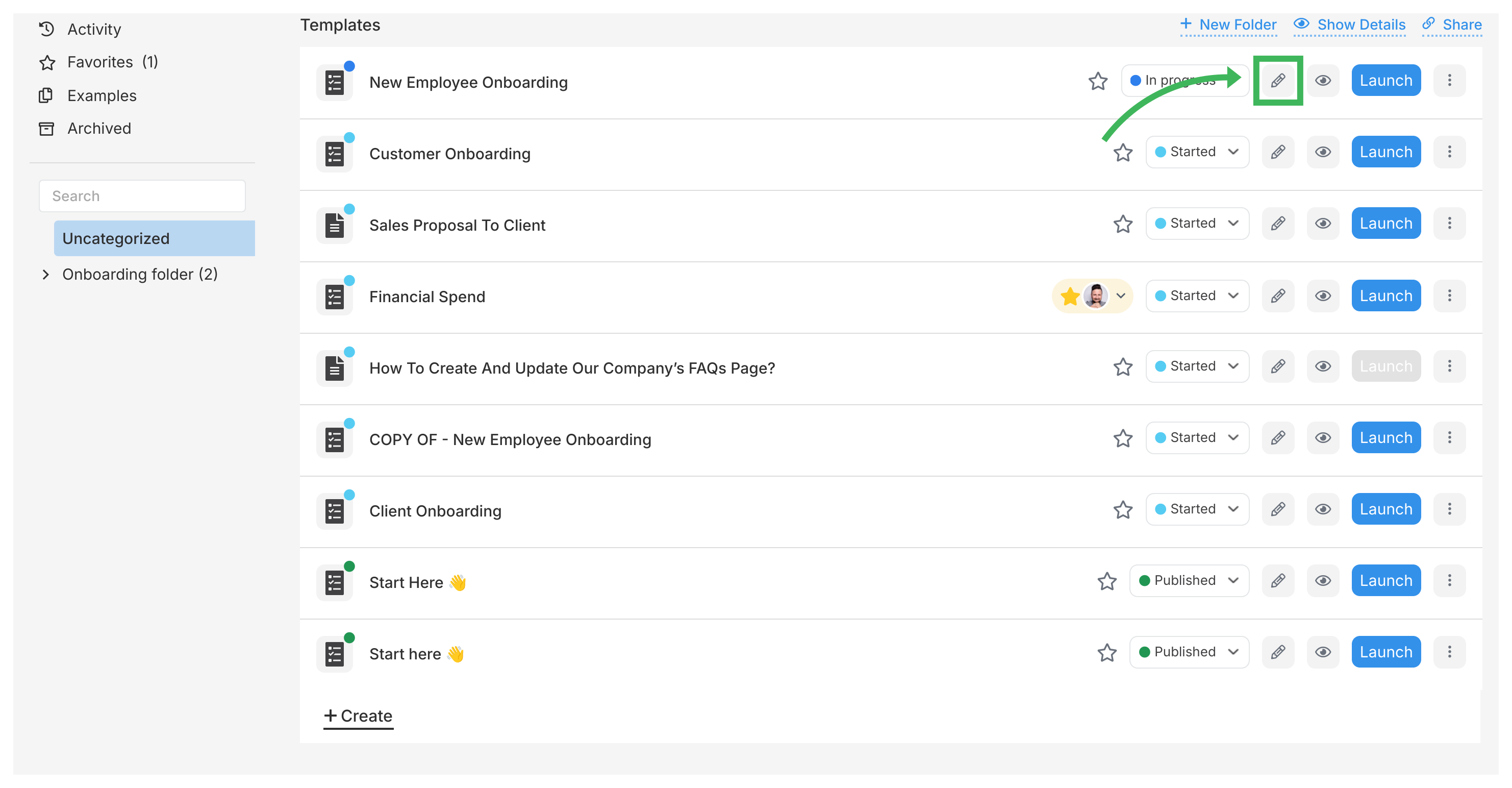Edit Templates > Add a description to a template
Add descriptions to templates and steps in Tallyfy by opening Edit mode, clicking Settings for the template summary, or clicking a step directly.
Click the Edit icon (pencil) on any template card to open the Edit view. From there, you can modify steps, descriptions, settings - everything about your template.

This opens the Edit view where you can change steps, descriptions, and settings.

The articles below cover each type of edit in detail.
Edit Templates > Add a description to a template
Edit Templates > Rename a template
Templates > Configure your template
Edit Templates > Change a template's status